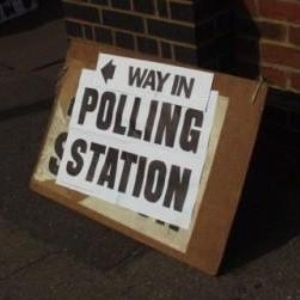Now that the smoke of battle (and confusion) of General Election 2010 has cleared and we have a Coalition Government that hasn’t yet been proven to be the spawn of Beelzebub, can I make a suggestion that demonising anyone in politics – even Tories – is not a good move?
Twenty five years ago, during the Thatcher years, a few of us on the Left made the observation that it was potentially unhelpful to refer to the politics espoused by her Government as ‘Thatcherism’, even as a shorthand. Our argument went that if you attach a name to a branch of politics in that very overt way, then as soon as the individual dies, quits or gets voted out of office then, almost by definition, that form of politics disappears from the scene. There is a historical precedent; whilst 99% of everyone called the political beliefs of Hitler and his followers Nazism or Fascism, a few people in the 30s – often doctrinaire Communists – referred to it as ‘Hitlerism’. Whereas we’ve been able to spot Nazism over the decades, spotting the politics underlying ”Thatcherism’ seems to have been harder – the monetarist and ‘Shock Doctrine’ policies of the Chicago School have come back repeatedly to haunt us in many ways, culminating in the years of Bush Junior Government in the US.
This last election has been truly bizarre, with people repeatedly warning me about ‘re-electing Thatcher’ in the form of David Cameron. The irony is that some of the folks who’ve been most vociferously demonising Thatcher and the Tories were in the twenties and early 30s – in other words, when Thatcher was in power these folks were either foetuses or snot-nosed kids.
Demonising any individual politician is fraught with danger for those doing it; unless your target is very obviously evil incarnate (in which case the vast majority of people will see it anyway and you’re ‘preaching to the choir’) then folks will just regard it as sour grapes and ‘ad hominem’ arguments. One thing that has started happening in recent times in the UK is that people have become disillusioned with the political process, politicians and the whole schoolyard ethos that seems to have permeated British politics for the last 20 years. The demonisation of one individual or party by others involved in the same ‘game’, so to say, has all the elements of ‘pot calling kettle black’ and people have responded to it accordingly.
It IS last century – just look at the nonsense at ACAS last night when BA Chief Willie Walsh was surrounded by a good old fashioned British ‘leftie rent-a-mob’ that seemed to belong more in the 1970s at Grunwick than in 2010. The union chief was furious, ACAS was embarrassed and angry, Walsh commented on the disgust he felt in the situation he was in. The demonstrators focused their chants on Walsh, and have probably significantly damaged chances of settling the dispute. Seeing the placards from groups like ‘Socialist Worker’, for those of us who were in the Labour movement in the 80s and 90s it was like a return to old times with the ‘Usual Suspects’ – the professional hecklers and agitators who have no great desire to settle these disputes but simply seek to benefit from them.
Boys and girls, that approach is over. It was always pointless and now people see it for what it is – egotistical tantrum throwing by typically over-privileged, under-occupied political performance artists. If you want to achieve change in our society – get involved with genuine community groups and put your backs in to getting some work done. Demonising the opposition is childish and pointless.

